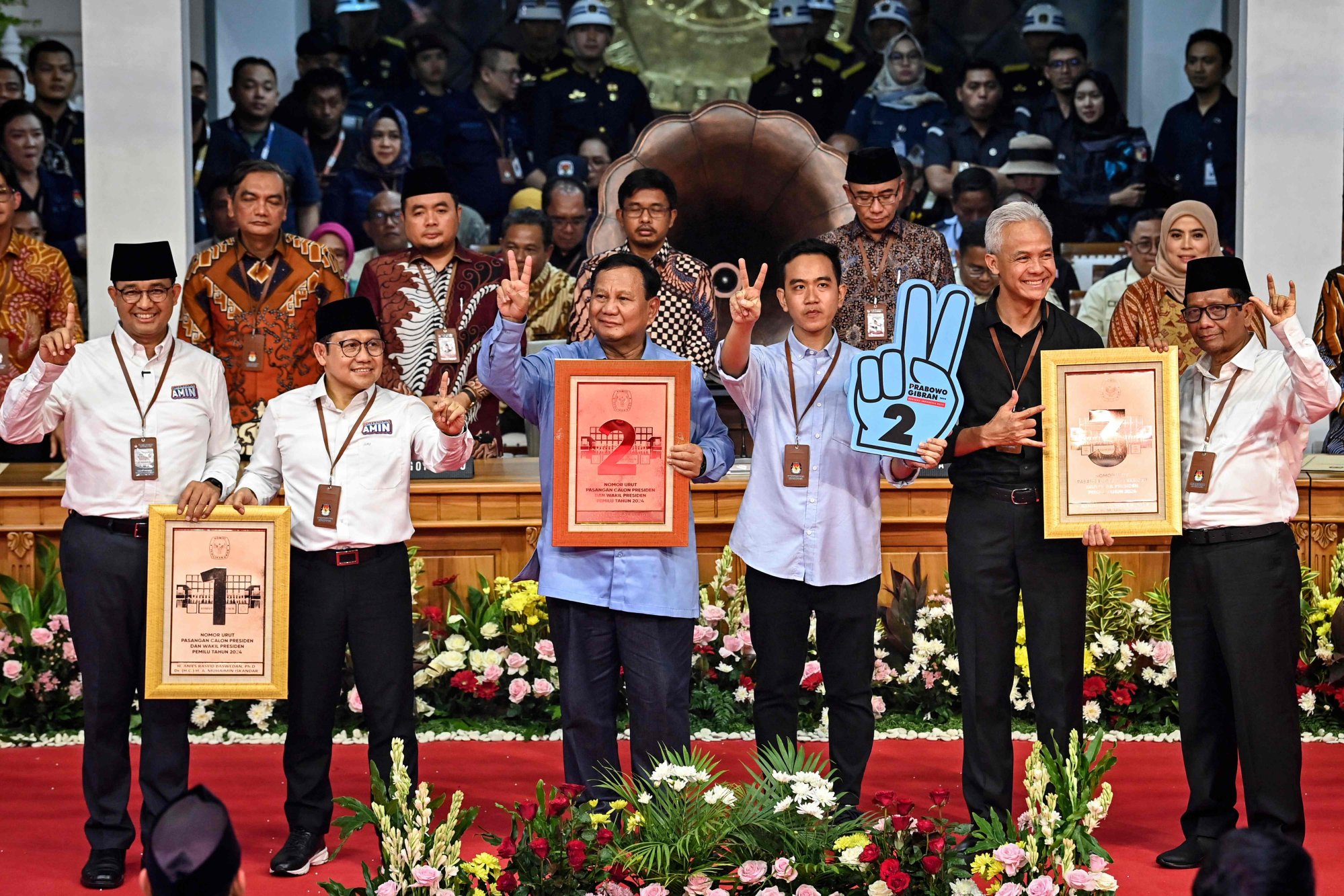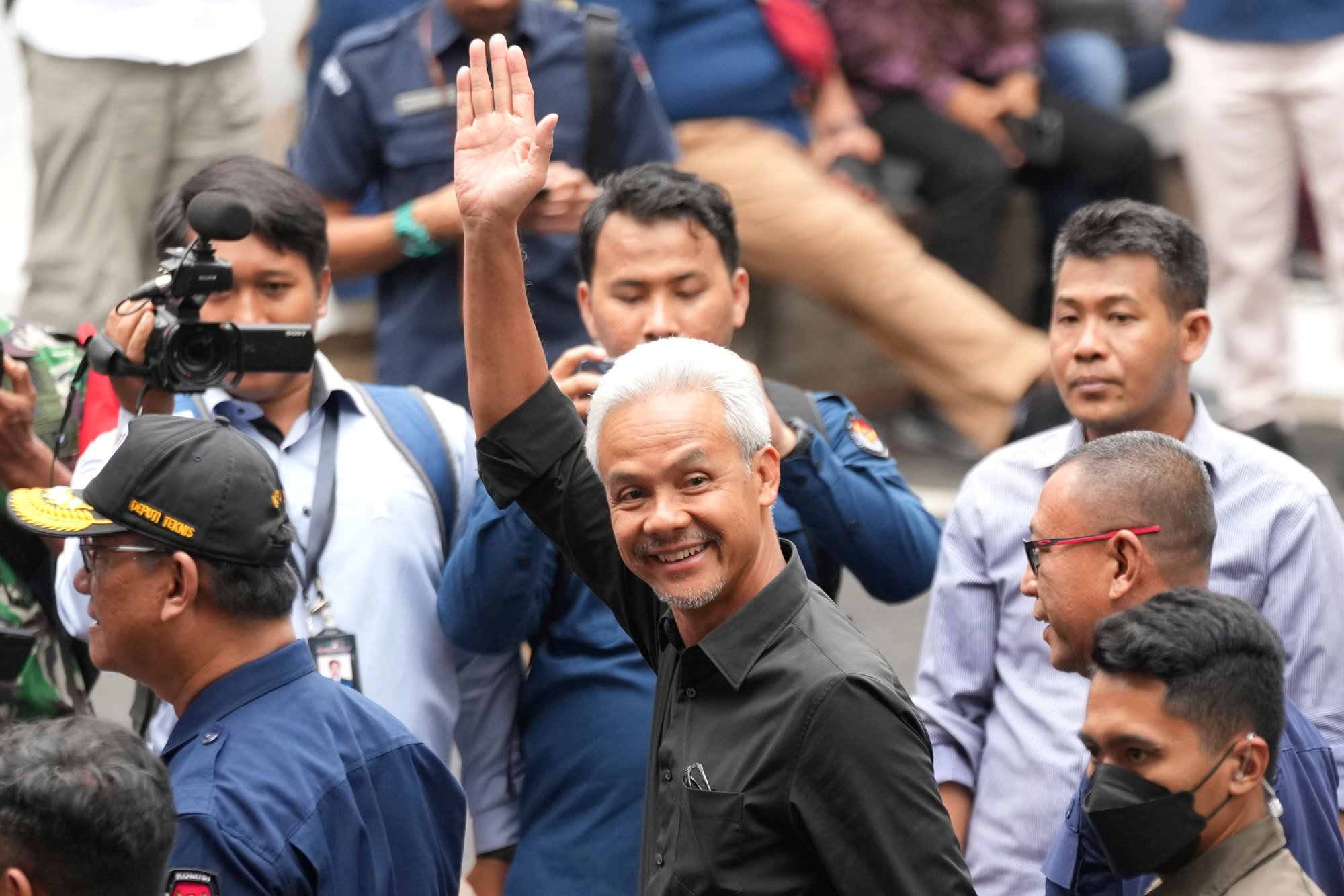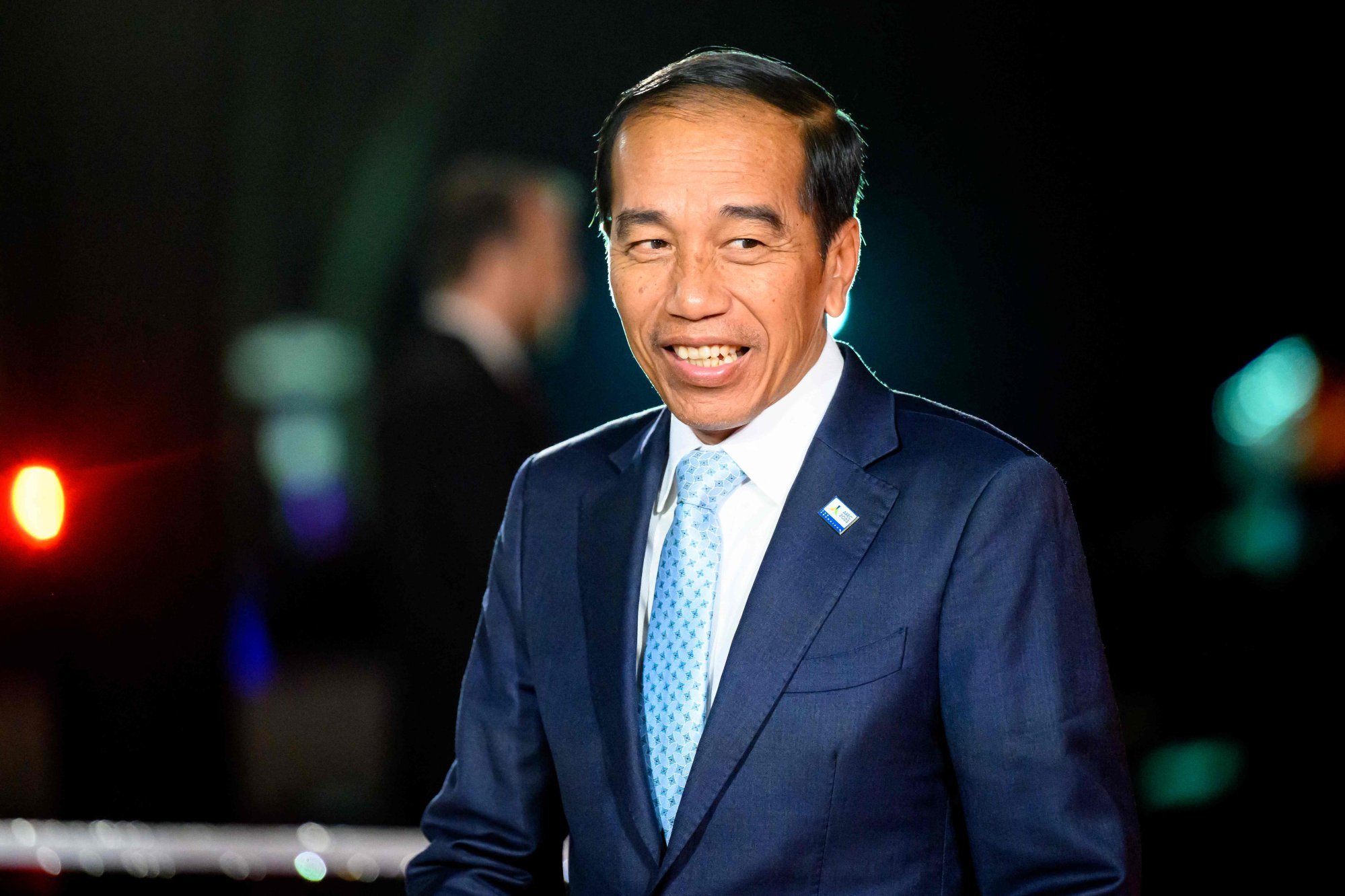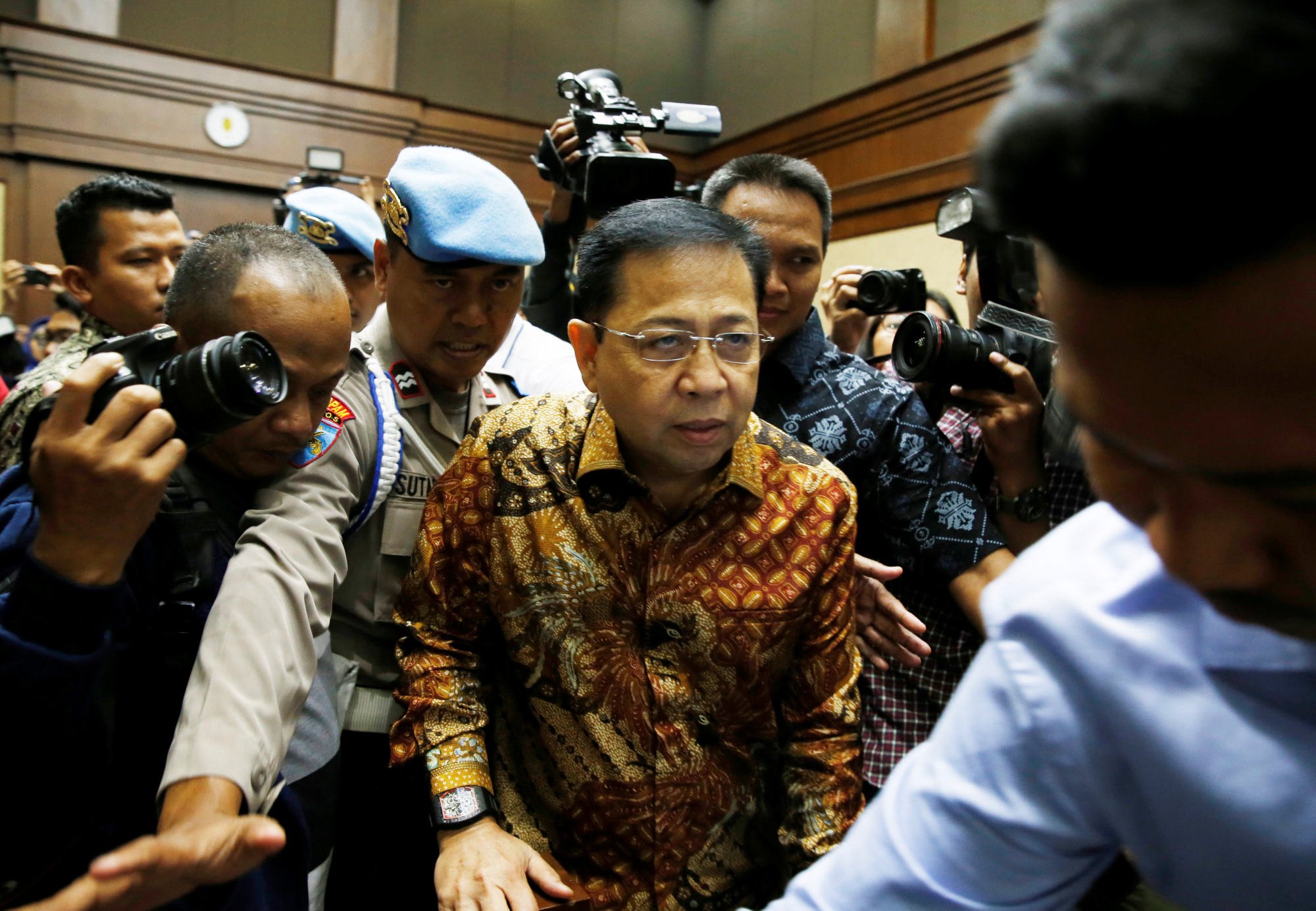Indonesia election 2024: Prabowo flying high despite ‘negative sentiments’ towards Gibran
He later apologised for the statements, saying he meant to say “folic acid”, a chemical that helps in the formation of fetal nervous systems and strengthens the uterus. Sulphuric acid, which is used in the production of batteries, fertiliser, pulp and paper, is dangerous for human consumption.
Why Indonesia’s Gen Z and millennials could determine nation’s next leader
Why Indonesia’s Gen Z and millennials could determine nation’s next leader
Nevertheless, Gibran’s statements quickly caused a backlash and led to numerous memes making fun of his faux pas.
Tifauzia Tyassuma, a doctor and vocal Gibran critic, said on X (formerly Twitter), described Gibran’s blunder as “a fatal fault”.
Gibran is also under investigation by the Jakarta Elections Supervisory Agency for allegedly violating their rules by involving children in campaign activities, when he invited a number of youngsters to join him on stage to be given books and milk during an event in North Jakarta on December 1.
On top of that, he also distributed free milk during a Jakarta Car Free Day event on December 3, at which political campaign events are forbidden. Gibran denied wrongdoing, claiming “there were no campaign attributes” present when he disbursed the milk.
Made Supriatma, a visiting fellow at the ISEAS-Yusof Ishak Institute in Singapore, argued that blunders by politicians were “normal in a democracy” and that they were unlikely to affect the pair’s leading position in the polls.
“Negative sentiments towards Gibran are very high, but they’re still leading in the polls. People see Prabowo and Gibran as the ideal presidential and vice-presidential candidates. They hope that [the next five years] will still be like Jokowi’s era,” Made said, referring to Widodo’s popular nickname.

‘What defines Ganjar?’
Aside from his own strong campaign, Prabowo has benefited too from Ganjar’s lack of a clear, distinctive brand, analysts said.
Ganjar, a former governor of Central Java, is running under the auspices of the ruling Indonesian Democratic Party of Struggle (PDI-P), to which both Widodo and Gibran belonged before the latter defected to Prabowo’s camp.

While Ganjar has shown himself to be a loyal PDI-P operative, analysts say he remains ill-defined beyond that in the eyes of the public.
“We still don’t know if Ganjar will continue Jokowi’s programmes or oppose them. What defines Ganjar, who and what is he? The answers don’t exist at all,” Made said.
“I met the groups who organised Ganjar’s campaign and I asked them, ‘What is Ganjar’s brand?’ They said, ‘That’s what we were trying to find, so far we haven’t found it’.”
I wouldn’t be surprised if [Ganjar] was eliminated in the first round
Kevin O’Rourke, author of Reformasi Weekly, a newsletter that analyses Indonesian politics and policy, said in the latest Friday edition that Ganjar “still has yet to take stances or impart messages that resonate broadly, nor has he coined memorable slogans”.
“Ganjar has yet to delineate his candidacy in comprehensible terms. He emphasises his record as governor, respect for tolerance and a commitment to governance, but this is not captivating sufficient numbers,” O’Rourke wrote.
Made argues that it’s “too late” to define Ganjar’s brand now, two months before the February 14 election.
“I wouldn’t be surprised if he was eliminated in the first round,” Made said.
It also doesn’t help that both Prabowo and Ganjar seek the same type of voters, which explains why Prabowo’s gain in the polls typically come at the expense of Ganjar’s, said Wasisto Raharjo Jati, a political researcher at the Indonesian National Research and Innovation Agency.
“They share segments of the electorate, they compete against each other. The [aggressiveness] of their campaign teams will eventually determine who will be the leading candidate,” he said.

Attacks on Jokowi
Prabowo’s rivals have dialled up their aggressiveness recently by directing their attacks on Widodo, who has all but officially backed Prabowo and his son Gibran.
Muhaimin’s National Awakening Party had been part of Widodo’s coalition and supported his candidacy in the 2014 and 2019 presidential elections.
“Prabowo suddenly became a minister. Initially I was supposed to be the minister of defence, that’s what I was promised,” he said during a panel on November 26.
In the 2019 general election, Prabowo and his Gerindra party ran an opposition campaign in which the former special forces commander fiercely criticised Widodo’s first-term administration. Thus, it came as a shock to the nation when, after losing the bitterly contested election, Prabowo announced he would join Widodo’s coalition by accepting the offer to be defence minister.
On Monday, Widodo dismissed Muhaimin’s claim. Ministerial appointments were “entirely the president’s prerogative. No such things as” promising seats to allies, he told reporters.
Indonesia’s Anies Baswedan targets Jokowi’s Nusantara plan in election strategy
Indonesia’s Anies Baswedan targets Jokowi’s Nusantara plan in election strategy
Another bombshell claim was made last week by Agus Raharjo, the former chair of the Anti-Corruption Commission (KPK), who said that in 2017, Widodo had demanded an end to a corruption probe into Setya Novanto, a former house speaker and one of Widodo’s political allies.
“I was summoned alone by the president. I was surprised to be called on my own, without other KPK members, and I was brought in through a back entrance in a small mosque, away from the view of reporters,” Agus said during a televised interview on November 30.
“I entered [the president’s office and] he screamed: ‘Halt it!’ I was taken aback … what was it that should be stopped? After I took a seat, I realised I was being told to stop the case against [Setya Novanto] regarding [his corruption charges].”

On Monday, Widodo denied the allegations and pointed to a statement he made in 2017 when he said that Setya should follow all the legal proceedings.
Setya was eventually sentenced to 15 years in prison after being found guilty of falsifying tenders and accepting kickbacks that caused 2 trillion rupiah (US$128.7 million) in state losses.
“What’s the point of making all this roar? What interest does [Agus’ statements] serve, for what purpose?” Widodo told reporters on Monday.
While Agus is not linked to any candidate, his statements were quickly seized on by Prabowo’s rivals, including by Mohammad Mahfud, Ganjar’s vice-presidential candidate.
“Let the public judge [Agus’ statements]. But we must not intervene in law enforcement. I myself never do that,” Mahfud said last week.
Fears for Indonesia democracy as Jokowi’s son could run as VP after court ruling
Fears for Indonesia democracy as Jokowi’s son could run as VP after court ruling
O’Rourke of Reformasi wrote in Friday’s newsletter that Agus’ statement may have very little impact on Widodo’s popularity, as well as Prabowo’s electability.
“Widodo has amassed strong popularity due to the government’s provision of social-service spending amid low inflation, and this stature tends to insulate him from criticism regarding the rule of law and corruption,” O’Rourke said.
“Presidential candidates competing against the Widodo-Prabowo alliance, Ganjar Pranowo and Anies Baswedan, still remain quite reticent about openly criticising the president, and therefore Rahardjo’s revelations may go largely unnoticed.”

